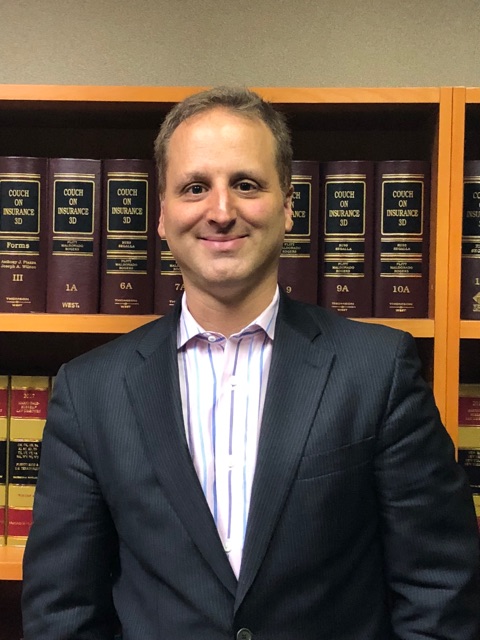
The issues surrounding medical marijuana have resulted in a complex maze of regulatory, legal and ethical challenges. Providers who are considering implementing a medical marijuana program are in a quandary as they must find the means to balance existing restrictions concerning medical cannabis while simultaneously addressing the needs of patients who wish to consider this form of treatment.
In order to tackle this dilemma effectively, providers must adopt realistic policies and procedures concerning every aspect of medical marijuana use.
This is not a simple undertaking because of the state-federal dichotomy concerning medical marijuana. By virtue of our federalist system of government, states can devise laws to suit their individual populations and the needs of the voting public. In the realm of medical cannabis, California and Colorado were at the forefront of implementing regulations as they created laws circumscribing how medical marijuana can be produced, manufactured and distributed.
However, possession and sale of marijuana remains illegal under federal law as it is classified as a Schedule-1 drug. This categorization means that the federal government views cannabis as having no medicinal value whatsoever and also reflects concern over the fact that medical marijuana contains the psychoactive compound THC. The practical effect of the Schedule-1 designation, besides shaping criminal penalties for possession and sale, is that it restricts access to patients who may want medical marijuana as a form of treatment.
For example, recently, the U.S. Department of Veterans Administration categorically prohibited its healthcare providers from recommending or assisting veterans to obtain medical marijuana. Similarly, long-term care facilities, which are regulated at the federal level and rely on federal funding through the Centers for Medicare & Medicaid Services, would technically be violating federal law by possessing and distributing medical marijuana. For skilled nursing providers, the risk of losing federal reimbursement or facing criminal liability may outweigh the potential benefit of allowing residents access to medical marijuana.
The Schedule-1 classification means the federal government will not fund clinical trials to explore the benefits of marijuana. Thus, all of the evidence suggesting that medical marijuana relieves a host of chronic conditions such as pain, post-traumatic stress disorder, arthritis, seizures, muscle spasms and Alzheimer’s disease, is largely anecdotal. Indeed, many healthcare professionals urge caution about adopting medical marijuana programs and cite to the lack of reproducible, robust and verifiable scientific evidence as a major barrier to wider implementation since there is no way to accurately assess marijuana’s real impact on public health and safety.
Moreover, dosage and potential harmful side effects are largely without any established guidelines or “best practices.” Without viable research and consensus criteria for recommending medical cannabis, providers may be hesitant to adopt it into their practices or offer it as a substitute for pharmacological agents that have the support of years of research on potential risks and benefits.
Nonetheless, skilled nursing facilities willing to adopt a medical marijuana program must determine whether they can integrate it into their communities in a purposeful way.
Clearly, there must be credible physician assessment evaluating the risk-benefit impact of medical marijuana on individual residents’ well-being. Viable care plans as to the best approaches to possible side effects and dosage must be created. Skilled nursing providers must also tackle the problem of acquisition and storage since they cannot purchase the product and by necessity would have to rely on a middleman to serve as the conduit. This raises questions of agency and whether a facility should be held accountable for the actions of a resident’s agent should there be an adverse reaction to marijuana.
If a nursing facility operates in a state that enables it to make direct acquisition of medical cannabis from a state approved dispensary, the facility would still need to take precautions to ensure that the product is not falling into inappropriate hands. Medical marijuana would also need to be self-administered by residents and could not be part of routine medication administration by the facility. Medical marijuana would not be covered by Medicare or Medicaid; therefore, residents would have to pay for it out of pocket and in cash. Federal law also precludes long-term care facilities from storing medical marijuana. Thus, residents could only store it in individual lockboxes which they personally maintain.
There are also insurance impacts. As there is a dearth of information about medical marijuana liability, providers may need to obtain additional coverage beyond professional liability malpractice. Without a history of claims versus losses it could be a challenge to predict adequate limits for cannabis based liability, making insurers hesitate to insure the potential loss. Some insurers will not insure medical marijuana at all which creates a limited specialty market in which providers can obtain insurance.
Ethical issues also abound. Facilities may find themselves navigating the difficult scenario of having residents and staff with visceral or moral objections to marijuana usage. If facilities prohibit smoking, then by necessity, medical marijuana would be restricted to capsules or tinctures. There is also a cultural stigma attached to cannabis use that may cause a backlash in diverse, multi-ethnic resident and staff populations.
It is imperative for providers who are considering medical marijuana to weigh these considerations against the potential benefits of pursuing such a program. Providers then must create specific policies and procedures tailored to their individualized interests while balancing patient rights and interests, complying with divergent state and federal law and the facilities’ own operational needs and philosophies.
Mario C. Giannettino is a partner at Kaufman Borgeest & Ryan, LLP and litigates matters pertaining to all aspects of the defense of long-term care providers.
Disclaimer: The contents of this website are intended to convey general information only and not to provide legal advice or opinions.





